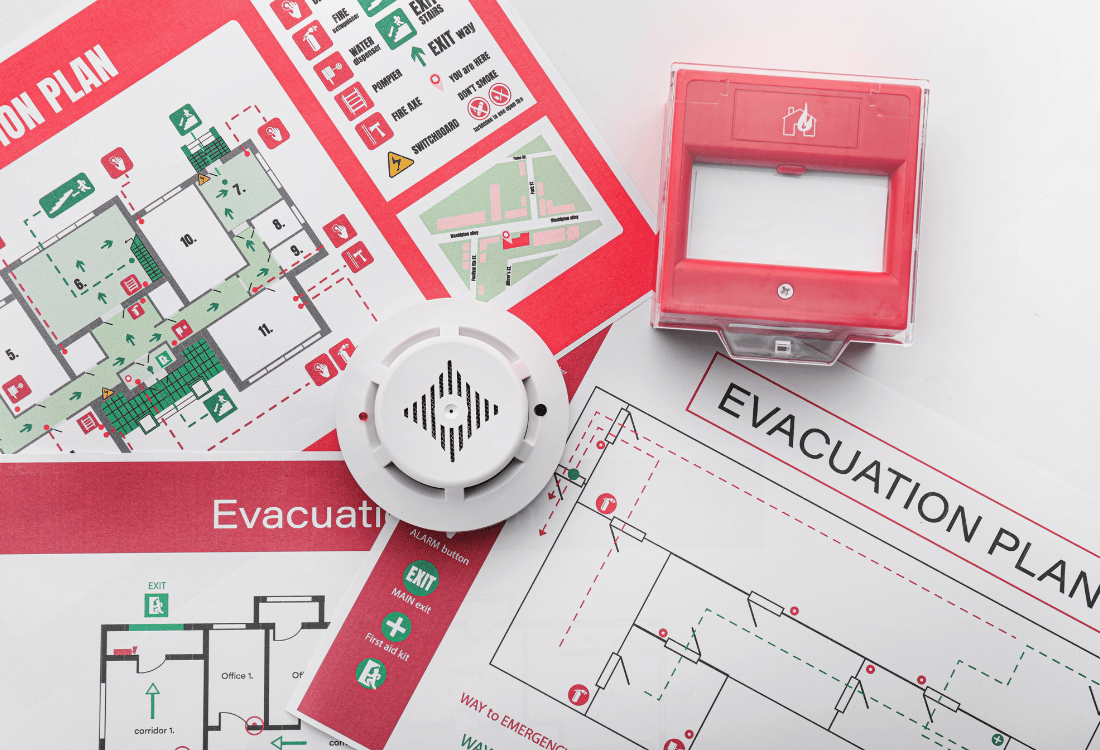


08/09/2024
Is your hospital adequately equipped for an evacuation if the situation arises?
Like all public buildings, hospitals may need to be evacuated in an emergency, but there are considerable challenges to overcome to protect patient safety. Many patients depend on lifesaving equipment and regular medications, so their movement could expose them to additional risk if not properly managed. The hospital may also have an unspecified number of visitors whose identity cannot be easily verified.
In this article, we'll outline the key factors to consider to ensure that your hospital's evacuation is carried out quickly and safely without exposing patients, visitors, and staff to risk.
Why are hospital evacuations important?
The purpose of a hospital evacuation is to move patients, staff, and visitors to safe zones if a major incident makes remaining in the building unsafe. This could be due to a fire, natural disaster, chemical leak, or other critical situation.
Under NHS England’s Emergency Preparedness Resilience and Response (EPRR) Framework, hospitals must demonstrate that they can effectively manage disruptive events and maintain high standards of patient care. While evacuations are a last resort, the possibility should never be excluded.
The importance of advance planning
Every hospital should have a comprehensive Hospital Evacuation Plan that outlines the specific procedures for different types of emergencies that would necessitate an evacuation. Under the plan, staff should understand their responsibilities. There should be procedures for transferring patient records, emergency equipment, and medication. Systems should be established to ensure effective communication between staff, other hospitals, and emergency services.
Maintaining effective communication
In highly pressured situations, particularly where normal routines and procedures are disrupted, systems of communication can fall by the wayside, increasing the risk to vulnerable patients. During a hospital evacuation, it is imperative to maintain efficient communication between staff, patients, and emergency services. Staff must be able to receive instructions and requests for assistance quickly, and emergency services should understand their specific roles. Neighbouring hospitals may need to be alerted to expect an influx of patients, particularly if damage to the building means that evacuated patients cannot return to their wards.
Ensuring access to hospital equipment
Time is of the essence in an emergency evacuation, so key medical equipment and supplies, such as portable oxygen tanks, emergency medication kits, and non-electric suction devices, must be accessible and ready to move. Staff should have clear insights into equipment requirements, which may vary for individual patients during evacuation.
Staying prepared
Regular staff training and practice drills are essential to ensure all hospital staff are fully prepared for potential evacuations and understand their role. The physical and emotional pressure of a live hospital evacuation is extremely high, so proper preparation and planning is of the utmost importance.
The SmartEvacuation™ System
At TSG Associates, our SmartEvacuation™ System is a practical solution to the challenges of hospital evacuations, helping medical teams safeguard patients in critical incidents.
We offer bespoke training programmes to ensure all users are competent and confident to use evacuation equipment. This helps hospitals to:
- Improve decision making.
- Clarify communication terminology and methods.
- Ensure the provision of appropriate chain-of-care for patients.
- Enhance the tracking and tracing of patients.
Your next step
To assess how prepared your healthcare facility is, please book a free hospital consultation with TSG Associates today. You can also listen to our latest Podcast below, where we discuss the concepts of a hospital evacuation and the personal experiences of our special guest, Mary Rose Fitzgerald.
Image Source: Canva









